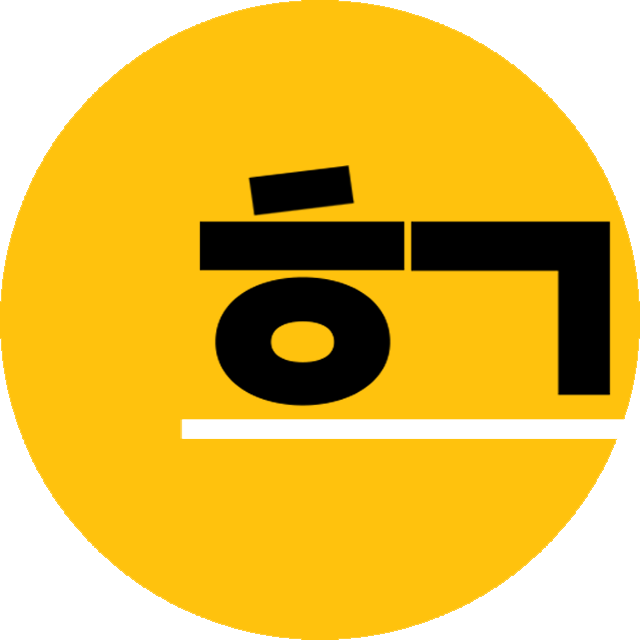개요
이제 HttpServlet을 상속받아 우리의 비즈니스 로직을 처리하는 Servlet을 만들고 WAS에게 처리하도록 하면 HTTP 애플리케이션이 완성된다.
프로젝트 생성
mvn archetype:generate
위 명령을 입력해 빈 프로젝트를 생성해주자.
<?xml version="1.0" encoding="UTF-8"?>
<project xmlns="http://maven.apache.org/POM/4.0.0" xmlns:xsi="http://www.w3.org/2001/XMLSchema-instance"
xsi:schemaLocation="http://maven.apache.org/POM/4.0.0 http://maven.apache.org/xsd/maven-4.0.0.xsd">
<modelVersion>4.0.0</modelVersion>
<groupId>com.lickthespring.web</groupId>
<artifactId>web</artifactId>
<version>1.0-SNAPSHOT</version>
<name>web</name>
<packaging>war</packaging>
<properties>
<project.build.sourceEncoding>UTF-8</project.build.sourceEncoding>
<maven.compiler.source>1.7</maven.compiler.source>
<maven.compiler.target>1.7</maven.compiler.target>
</properties>
<dependencies>
<dependency>
<groupId>junit</groupId>
<artifactId>junit</artifactId>
<version>4.11</version>
<scope>test</scope>
</dependency>
<dependency>
<groupId>jakarta.servlet</groupId>
<artifactId>jakarta.servlet-api</artifactId>
<version>6.0.0</version>
<scope>provided</scope>
</dependency>
</dependencies>
<build>
<plugins>
<plugin>
<artifactId>maven-compiler-plugin</artifactId>
<version>3.6.1</version>
<configuration>
<source>1.8</source>
<target>1.8</target>
</configuration>
</plugin>
<plugin>
<artifactId>maven-war-plugin</artifactId>
<version>3.3.2</version>
<configuration>
<webXml>src/main/webapp/WEB-INF/web.xml</webXml>
<failOnMissingWebXml>false</failOnMissingWebXml>
</configuration>
</plugin>
</plugins>
</build>
</project>위와 같이 pom.xml을 수정해 주었다.
- WAS는 jar이 아닌 war 형식의 파일을 요구하기 때문에, <packaging>war</packaging> 을 추가하였다.
- Servlet API를 사용하기 위해 jakarta.servlet-api를 의존성에 추가하였다.
- maven-war-plugin은 web.xml 파일이 없으면 오류가 발생하므로, web.xml 파일이 없어도 동작하도록 <failOnMissingWebXml>false</failOnMissingWebXml> 를 추가하였다.
톰캣 내려받기
가장 대중적으로 사용되는 WAS인 톰캣을 사용하자.
톰캣 공식 홈페이지에서 Core(zip) 을 내려받으면 된다.
https://tomcat.apache.org/download-10.cgi
압축을 풀고 bin 폴더 내의 startup.bat (startup.sh)을 실행하면 톰캣이 실행된다.
http://localhost:8080 접속했을 때 귀여운 고양이가 나오면 정상적으로 설치된 것이다.
Servlet 만들기
HttpServlet (jakarta.servlet.http.HttpServlet)을 상속받는 클래스를 만들자.
package com.lickthespring.web;
import jakarta.servlet.http.HttpServlet;
public class SampleServlet extends HttpServlet {
}
이렇게만 해도 해당 클래스는 Servlet으로 동작한다.
HttpServlet이 doGet, doPost, doPut, doDelete 등을 기본으로 구현해두었기 때문이다.
// HttpServlet에 구현된 doGet 메서드
protected void doGet(HttpServletRequest req, HttpServletResponse resp) throws ServletException, IOException {
String protocol = req.getProtocol();
String msg = lStrings.getString("http.method_get_not_supported");
resp.sendError(getMethodNotSupportedCode(protocol), msg);
}
이 메서드를 Override해서 비즈니스 로직을 추가하자.
확인을 위해 init 메서드(Servlet이 생성될 때 호출됨)도 Override 하였다.
package com.lickthespring.web;
import java.io.IOException;
import java.io.PrintWriter;
import jakarta.servlet.ServletException;
import jakarta.servlet.http.HttpServlet;
import jakarta.servlet.http.HttpServletRequest;
import jakarta.servlet.http.HttpServletResponse;
public class SampleServlet extends HttpServlet {
@Override
public void init() throws ServletException {
System.out.println("Servlet Initialized!");
}
@Override
protected void doGet(HttpServletRequest req, HttpServletResponse resp) throws ServletException, IOException {
String requestURI = req.getRequestURI();
System.out.println("GET Request from " + requestURI);
//DO SOMETHING
resp.addHeader("content-type", "text/plain");
resp.setStatus(200);
PrintWriter writer = resp.getWriter();
writer.println("Hello Servlet World!");
}
}
이제 우리의 비즈니스 Servlet이 완성되었다.
그런데 이 Servlet을 WAS(톰캣)에게 어떻게 전달할 수 있을까?
다시 말해 톰캣은 이 class가 Servlet임을 어떻게 인지할 수 있을까?
web.xml을 이용하는 방법
web.xml 파일에 서블릿 정보들을 등록해두면, 톰캣은 web.xml이라는 파일을 읽고 서블릿을 등록한다.
src/main/webapp/WEB-INF/web.xml 파일을 만들고 아래와 같이 입력하자.
(경로는 pom.xml에서 maven-war-plugin을 설정에서 설정하였다.)
<?xml version="1.0" encoding="UTF-8"?>
<web-app version="3.1" xmlns="http://xmlns.jcp.org/xml/ns/javaee" xmlns:xsi="http://www.w3.org/2001/XMLSchema-instance" xsi:schemaLocation="http://xmlns.jcp.org/xml/ns/javaee http://xmlns.jcp.org/xml/ns/javaee/web-app_3_1.xsd">
<servlet>
<servlet-name>sampleServlet</servlet-name>
<servlet-class>com.lickthespring.web.SampleServlet</servlet-class>
</servlet>
<servlet-mapping>
<servlet-name>sampleServlet</servlet-name>
<url-pattern>/*</url-pattern>
</servlet-mapping>
</web-app>이렇게 서블릿을 등록하고 서블릿에 mapping될 URL을 설정해주면 톰캣이 서블릿을 인식할 수 있다.
어노테이션을 이용하는 방법
Servlet 클래스에 @Servlet 어노테이션을 붙이면 WAS는 해당 클래스를 Servlet으로 인식한다.
이는 Jakarta Servlet 표준 사양이다.
//...
import jakarta.servlet.annotation.WebServlet;
@WebServlet(value = "/*")
public class SampleServlet extends HttpServlet {
...
}
톰캣에 배포하기
어노테이션을 이용해도 되고, web.xml을 이용해도 된다. 심지어 두 가지 방법을 함께 사용할 수도 있다.
Servlet이 완성되었으면 아래 명령어를 입력해 war파일을 생성하자.
mvn clean package
프로젝트 루트의 target 폴더를 보면, web-1.0-SNAPSHOT.war 파일이 생성되었다.
이를 아까 내려받은 톰캣의 webapps 폴더에 ROOT.war 이라는 이름으로 붙여넣자.
이제 톰캣을 실행하면(이미 실행중이라면 포트 충돌이 발생하므로 종료 후 재실행 해야 함), 우리의 Servlet을 만날 수 있다.
작동 확인하기
첫 접속시 콘솔에 Servlet Initialized! 와 GET Request from / 가 표시되며, 브라우저에는 Hello Servlet World! 가 나타난다.

브라우저 개발자도구를 이용해 자세히 살펴보면, 우리가 입력한 응답헤더(status code, content-type)이 브라우저로 잘 전달되었음을 확인할 수 있다.
Connection, Content-Length 등의 헤더는 WAS가 자동으로 생성해준다.
이후, 여러번 접속을 반복하면 Servlet Initialized! 는 더 이상 보이지 않고 Get Request from / 이 반복적으로 출력된다.
기본적으로 Servlet은 싱글톤으로 동작하기 때문에, 첫 접속 시에만 초기화가 일어나기 때문이다.
초기화 작업이 무거운 작업인 경우 첫 접속자는 접속까지 오랜 시간을 기다려야 하므로, load on startup 옵션을 이용해 WAS가 시작될 때 초기화가 이루어지도록 설정할 수도 있다.
@WebServlet(value = "/*", loadOnStartup = 1)
public class SampleServlet extends HttpServlet {
//...
}
코드
본 글에 사용한 코드는 아래 레포지토리에서 볼 수 있다.
https://github.com/youhogeon/lickTheSpring/tree/58fb97988969af9c6b6f1172153bfdfc7db01552/web
'핥아먹기 시리즈 > Spring Web MVC 핥아먹기' 카테고리의 다른 글
| 5. MVC 패턴과 Spring Web MVC (0) | 2023.01.02 |
|---|---|
| 2-1. Embeded Tomcat 사용하기 (0) | 2022.12.30 |
| 4. JSP로 방명록 만들기 (0) | 2022.12.29 |
| 3. Servlet으로 방명록 만들기 (0) | 2022.12.29 |
| 1. Servlet과 WAS의 필요성 (0) | 2022.12.29 |
